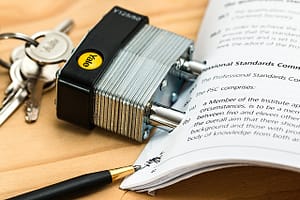Did you know that 29% of Australia’s population was born overseas? With Australia’s strong economy, stunning landscapes, and high quality of life, it’s no wonder that so many expats are choosing to make Australia their home. However, if you’re thinking of buying a property in Australia, you can make a purchase without understanding the country’s property laws. Here’s what you need to know about buying a property in Australia as an expat.
Foreign Investment Regulations
 The Australian government has specific rules in place to regulate the purchase of residential and commercial properties by non-residents. These regulations aim to ensure that investments made by foreigners do not have a detrimental impact on the local property market.
The Australian government has specific rules in place to regulate the purchase of residential and commercial properties by non-residents. These regulations aim to ensure that investments made by foreigners do not have a detrimental impact on the local property market.
As an expat, you will need to get approved by the Foreign Investment Review Board (FIRB) before buying any property in Australia. The FIRB examines each application on a case-by-case basis and considers factors such as the type of property, its purpose, and your residency status.
Visa and Residency Status
Without a doubt, the type of visa you hold will determine whether you can buy residential real estate or not. Generally, temporary visa holders are restricted from purchasing established properties, but they may be able to buy new dwellings. If you have obtained permanent residency or citizenship, congratulations. You have more flexibility when it comes to purchasing property. As a permanent resident or citizen, you have all the freedom to invest in both established and new properties without any restrictions.
Finances and Mortgages
 Financing a property purchase can be a significant challenge for expats in Australia. As an expat, you can’t just focus on shipping to Australia, you also need to be familiar with the financial aspects and mortgage options available to you.
Financing a property purchase can be a significant challenge for expats in Australia. As an expat, you can’t just focus on shipping to Australia, you also need to be familiar with the financial aspects and mortgage options available to you.
When applying for a mortgage as an expat, lenders will typically assess your income, employment stability, and credit history. It’s crucial to have all necessary documents ready, such as bank statements and tax returns from both your home country and Australia.
Keep in mind that some lenders may require a higher deposit or charge higher interest rates for expats due to perceived risk factors. Remember that each lender has different criteria and policies regarding mortgages for expats. Therefore, it is recommended to do thorough research before committing to any specific lender or mortgage product.
Legal and Tax Implications
Aside from those, understand that there may be restrictions on certain types of properties that can be purchased by foreigners. The Australian government has implemented regulations to control foreign ownership and ensure housing affordability for its citizens. Moreover, expats need to be aware of the tax obligations associated with owning property in Australia. Non-resident investors are subject to different tax rates compared to residents, and they may also have additional taxes imposed on rental income or capital gains when selling the property.
Bottom Line
Buying property as an expat in Australia is not that complicated once you have thorough knowledge of foreign investment regulations, visa and residency status requirements, financial considerations like mortgages, as well as legal obligations including taxes.…
